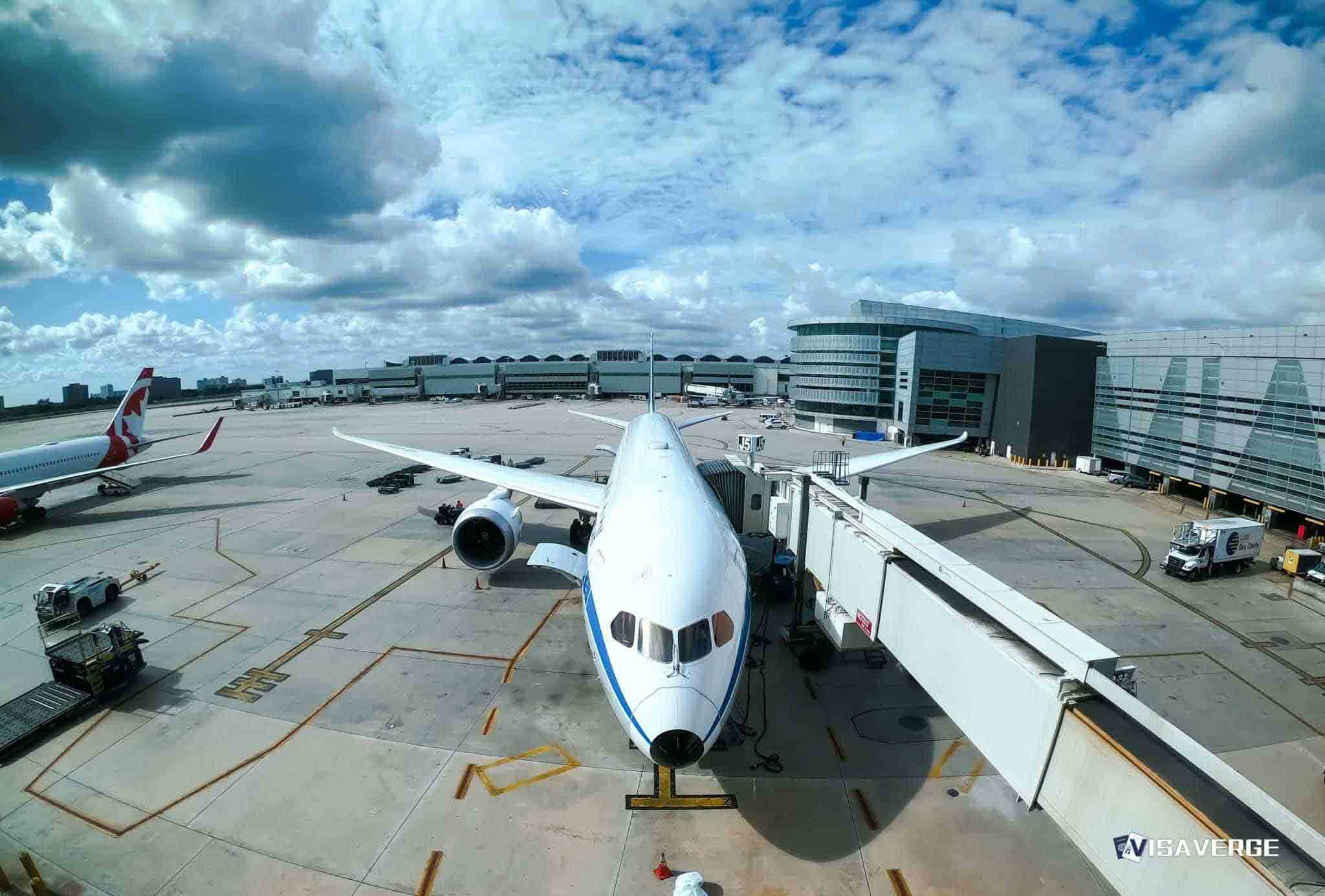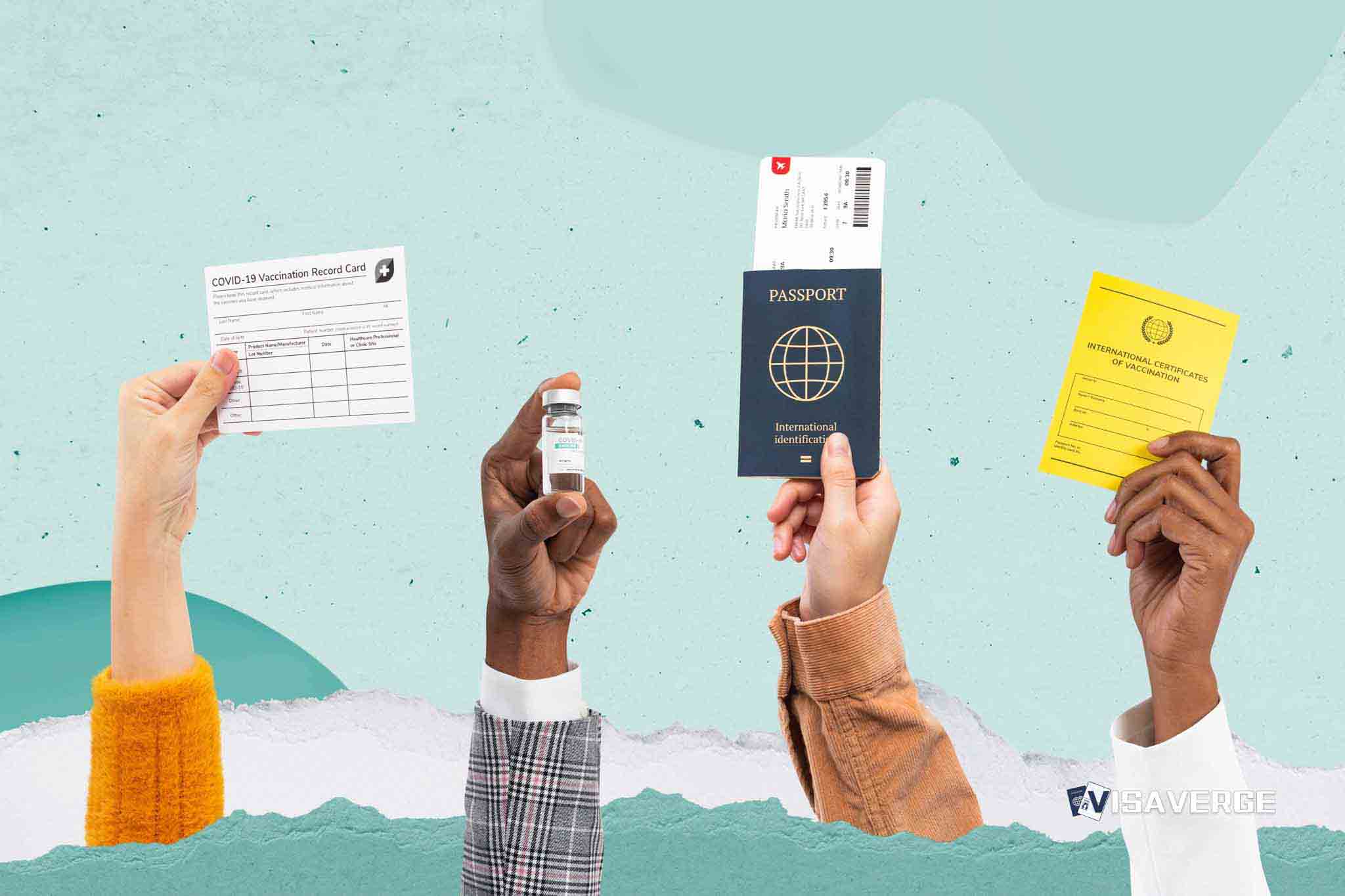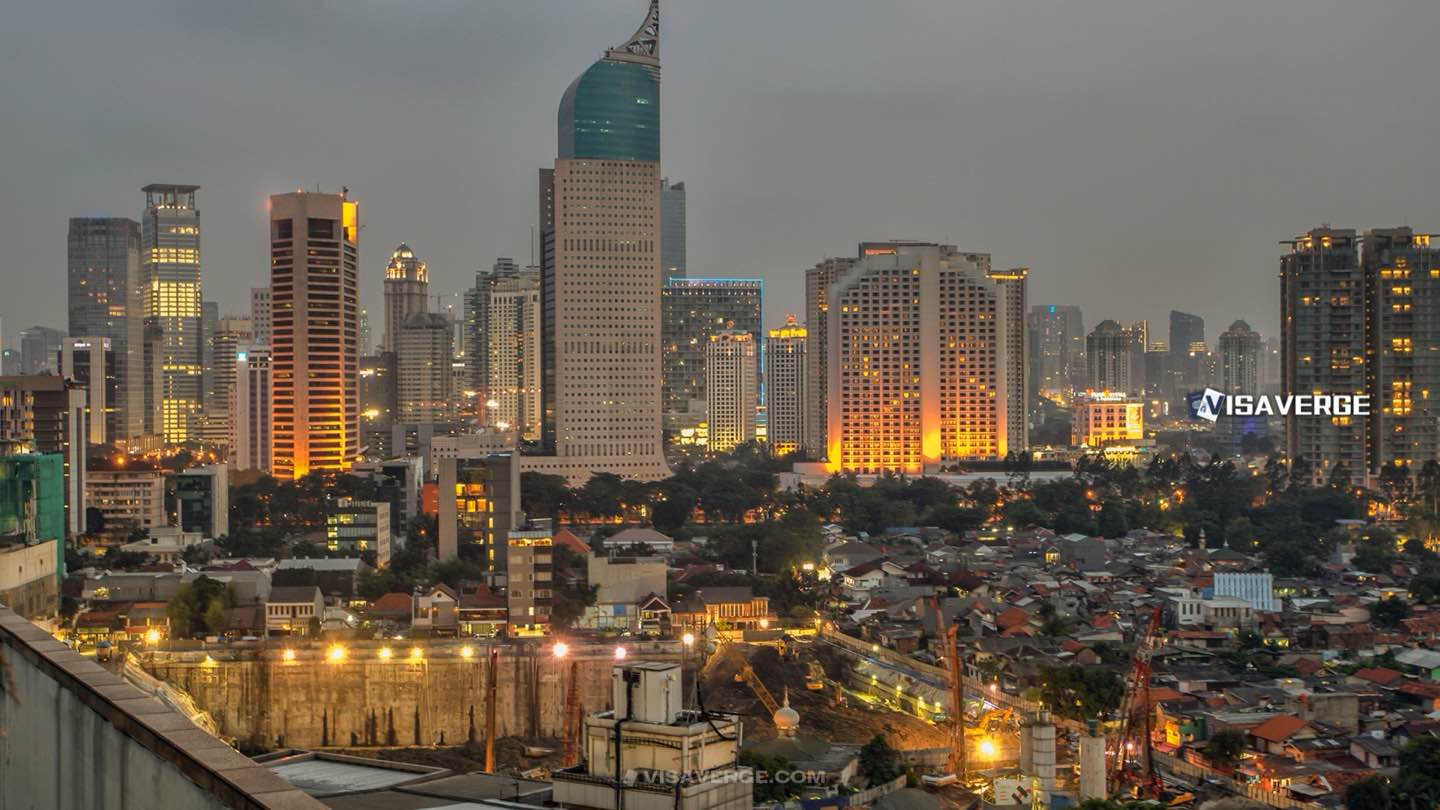Key Takeaways
• Lebanon will allow deportation flights for Syrian refugees from Europe to transit through Beirut airport starting February 19, 2025.
• European countries like Denmark and Cyprus tightened asylum policies, citing certain Syrian regions as safe, with EU funding aiding returns.
• Human rights groups warn of risks to Syrian refugees, citing unsafe conditions in Syria and potential violations of international refugee protections.
Lebanon has recently made an important decision to allow deportation flights for Syrian refugees from Europe to transit through Beirut airport before returning to Syria. This decision, announced by Lebanese authorities on February 19, 2025, has drawn global attention and sparked concerns over the treatment and rights of Syrian refugees. The directive, signed by the head of airport security, urges airlines to assist in the transportation of Syrians who had entered Europe through irregular methods and are now returning via Lebanon. Critics worry this move could transform Lebanon 🇱🇧 into a core transit point, or even a holding zone, for Syrians expelled from Europe.
This new policy coincides with an increasing number of European countries attempting to speed up deportation efforts for Syrian refugees. Following the fall of Bashar al-Assad and the establishment of a new government in Damascus, European nations such as Denmark, Austria, and the UK have reexamined their asylum policies toward Syrians. These governments argue that conditions in certain parts of Syria are now stable enough to deny asylum or deport individuals. According to reports, at least 17 European governments suspended asylum processes for Syrians shortly after Assad’s government fell.

Lebanon’s Role in Deportation Flights
Lebanon’s endorsement of these deportation flights provides logistical support to European nations while raising concerns about the country’s ability to manage the influx of returnees. Hector Hajjar, Lebanon’s former Minister of Social Affairs, has questioned the practicality of handling such transfers. He highlighted significant gaps in Lebanon’s transit and return framework, warning of the challenges posed by these operations. Lebanon already hosts approximately 1.5 million Syrian refugees, making it one of the countries most affected by the Syrian crisis.
This facilitation of deportation flights underscores Lebanon’s evolving role in regional migration dynamics but also comes against a backdrop of its long-standing efforts to reduce the refugee population. For over ten years, Lebanese authorities have enacted policies putting pressure on Syrian refugees to leave, often through marginalization and, more recently, forced deportations. However, as pressures grow, there are growing concerns that such forced returns may not adhere to international protection standards.
Europe’s Refugee Policies Tighten
The efforts by Lebanon 🇱🇧 mirror a larger shift taking place across Europe. Some European countries are advancing policies to either outright deny asylum to Syrians or push for their return by categorizing certain areas within Syria as safe. For example:
- The Netherlands is considering legislation to tighten asylum requirements, making it easier to deny applications while deporting Syrians already in the country.
- Cyprus suspended asylum applications for Syrians in April 2024, citing a sudden rise in arrivals and an “immigration emergency.”
The European Union (EU) itself has been actively supporting such initiatives. As part of its broader migration control policy, the EU has allocated substantial financial resources to assist countries in managing returns. Between May 2022 and September 2024, Cyprus received €9.7 million from the EU to fund its voluntary returns programs. These funds helped deport around 12,600 individuals, with EU officials promoting Cyprus’ approach as a successful model for other nations under pressure from migration challenges. Additionally, in October 2024, the EU created a €25 million fund to support “assisted voluntary returns,” particularly benefiting Mediterranean countries.
Criticisms have arisen, however, with human rights organizations questioning whether these so-called “voluntary returns” are truly free of coercion. Critics argue that the EU prioritizes migration control at the expense of refugee rights. In May 2024, the European Commission approved €1 billion in aid to Lebanon for border management and refugee support, but agencies warned that this support lacks mechanisms to ensure it aligns with human rights standards.
The Risk for Syrian Refugees
Despite these policies, returning to Syria still poses serious risks for many refugees. Multiple human rights organizations, including Human Rights Watch, have documented severe consequences for Syrians sent back to government-controlled areas. These include forced disappearances, arbitrary arrests, and even deaths under suspicious circumstances in Syrian detention centers. Cases like the deaths of two men deported from Lebanon and Türkiye since 2023 serve as grim reminders of the dangers returnees face. There have also been numerous reports of other arrests and violations against those who attempted to reintegrate into Syrian society.
The UN Refugee Agency (UNHCR) has reiterated its stance against large-scale returns to Syria, citing unsafe and unstable conditions. While over 34,000 refugees officially crossed back into Syria during the first eight months of 2024, actual figures are believed to be much higher due to informal crossings. Following an escalation in the Lebanese border crisis in late September 2024, around 320,000 Syrian refugees were estimated to have returned to Syria under dire circumstances as of October 2024.
The Complex Situation in Lebanon
Lebanon’s internal situation further complicates the issue. The country is already reeling from years of economic and political instability, coupled with a severe refugee crisis. Ongoing Israeli airstrikes have intensified instability in the region, forcing thousands of Syrians to flee from Lebanon back into Syria. This exodus, while driven by worsening conditions in Lebanon 🇱🇧, comes as Syria itself remains unsafe for return.
Facilitating deportation flights from Europe highlights Lebanon’s delicate position as a host country, transit point, and now an enabler of these deportations. Beirut’s airport is fast becoming a key hub for such operations, amplifying questions about whether this shift will entrench Lebanon’s role in European deportation strategies, and at what cost to the refugees involved.
International Responses and Obligations
In light of these developments, many human rights advocates are urging European and Lebanese authorities to respect international laws, particularly principles like non-refoulement. Under this principle, individuals cannot be forced to return to a country where they face threats to their life or freedom. Advocacy groups emphasize the dangers of short-term migration strategies which prioritize deportation over durable solutions.
The international community faces a tough balancing act. On one hand, European nations express growing frustration over rising refugee numbers. On the other, Lebanon endures increasing strain from hosting millions of displaced Syrians. However, policies that simply push refugees to leave—either through direct deportations or measures amounting to forced returns—risk undermining widely recognized humanitarian standards.
Looking Ahead
Refugee rights activists argue that safe returns to Syria cannot currently be guaranteed, no matter what European or Middle Eastern governments claim. The geopolitical factors in play, coupled with ongoing instability within Syria, suggest that most returnees will remain vulnerable and face uncertain futures. Meanwhile, Lebanon’s decision to facilitate deportation flights from Europe introduces significant changes not only to its migration policies but also to its role in broader regional dynamics.
The focus moving forward should be on collaborative approaches that respect legal obligations, ensure protections for refugees, and seek long-term solutions to address the root causes of displacement. The UN and other global agencies will be essential in overseeing these returns while advocating for humane policies moving forward.
Conclusion
The decision by Lebanon 🇱🇧 to facilitate deportation flights for Syrian refugees paints a complex picture of shifting refugee and immigration policies across Europe and the Middle East. While it alleviates some logistical challenges for European countries managing their migration systems, it also carries profound risks for Syrian refugees. The international community must monitor these developments closely and advocate for solutions prioritizing safety and dignity over expediency. More updates and analyses on immigration trends like these can be found on VisaVerge.com.
For further official information on refugee and migration policies, you can visit the UN Refugee Agency’s page on Syrian displacement.
Learn Today
Non-refoulement → A principle prohibiting the return of individuals to countries where they face threats to life or freedom.
Irregular methods → Unofficial or unauthorized ways of entering a country, often bypassing legal or formal immigration processes.
Asylum → Protection granted by a country to individuals fleeing persecution, war, or danger in their home country.
Forced deportations → The act of expelling individuals from a country involuntarily, often against their will or under coercion.
Humanitarian standards → Policies and principles intended to ensure humane treatment and protection, especially for vulnerable groups like refugees.
This Article in a Nutshell
Lebanon’s decision to facilitate deportation flights for Syrian refugees from Europe sparks global debate. As Europe tightens asylum policies, Lebanon risks becoming a transit hub, amplifying pressure on its fragile resources. While nations focus on deportation, human rights groups warn: without guaranteed safety, returns to Syria may endanger thousands.
— By VisaVerge.com
Read more:
• Cyprus Faces Criticism for Paying Syrian Refugees to Return Under EU Plan
• Teen Killed, Four Hurt in Villach, Austria Stabbing by Syrian Asylum Seeker
• Syrian Asylum Applications Persist Despite Assad’s Fall
• Former Syria Prison Chief Charged with U.S. Immigration Fraud
• Syrian Man Jailed for Passport Offense at Dublin Airport













